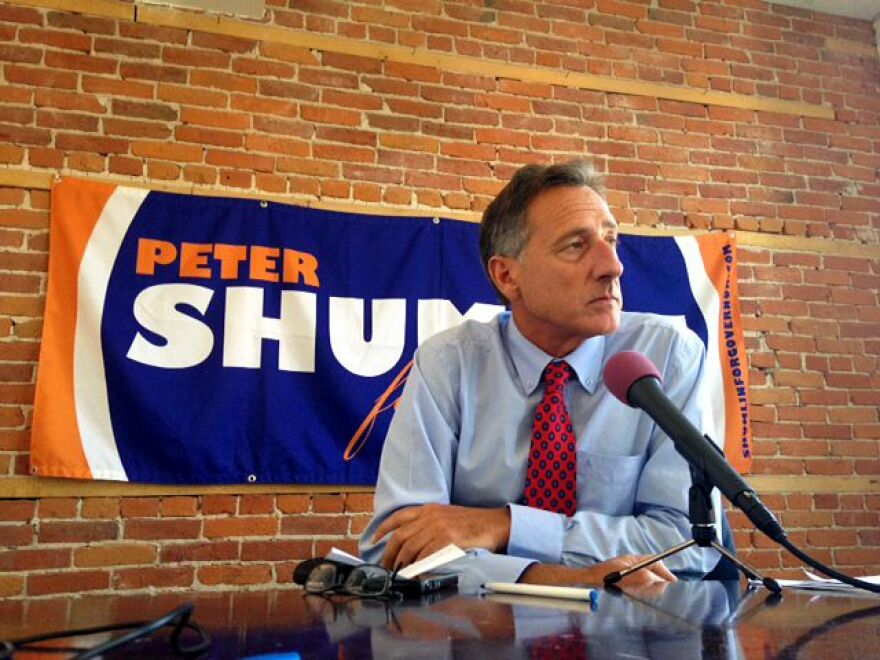As he launched his re-election campaign, Gov. Peter Shumlin said his top priority for a third term is the creation of more good paying jobs. He also wants Vermont to become the first state in the country to implement a single payer health care system over the next two years.
On economic issues, Shumlin says that while his administration has helped create more than 10,000 new jobs over the past four years, there’s still a lot of work to be done.
Shumlin says his overall economic plan is working because Vermont’s unemployment rate is one of the lowest in the country. He says Vermont is “on the right track” to expand economic opportunities over the next two years.
“Our challenge is to make sure that this state is affordable, that we balance budgets that we don’t raise taxes, income sales, rooms and meals which I haven’t done in four years as governor, because we need to keep the state competitive,” said Shumlin. “And I believe we’re on the right track.”
Retired Middlebury College political science professor Eric Davis says there are several ways to look at Vermont’s labor statistics. Although the state’s unemployment rate is quite low, Davis says there’s been virtually no income growth in the middle class and income tax revenues are not meeting projections.
“Those households have seen their incomes be stagnant for the last four years while health care costs are going up, property taxes are going up, and other aspects of the cost of living are outrunning their income gains,” Davis said.
Shumlin says he’s well aware of the situation facing many middle class families.
“The wealthiest are seeing their incomes expand, middle class Vermonters are continuing to get kicked in the teeth and lower income Vermonters are losing ground,” said Shumlin. “So we’ve got a lot more work to do.”
In each of the past two years, Shumlin has delayed outlining the roughly $2 billion tax package that will be needed to finance a single-payer system. This tax package would replace the current premium system. Davis doesn’t expect Shumlin to unveil this revenue package until January at the earliest.
“My sense is that Shumlin will be able to get through the election without saying more details than he’s said so far,” said Davis. “But once the plan is presented to the Legislature sometime in the winter then there will be a vigorous debate on it.”
Designing a comprehensive funding plan is very complicated, Shumlin says. But he says it will be based on a person’s ability to pay because he says the current premium system is “regressive.”
“If you’re willing or can pay, you do. If you can’t or won’t, you don’t and if you refuse, the folks who refuse to pay are paid for by the folks who do pay,” said Shumlin. “We think we can come up with a much better system moving from premiums to one where you pay for health insurance based on your ability to pay.”
Shumlin says he remains convinced that adopting a single payer system will provide a big boost for the Vermont economy because he says a lot of out of state businesses will want to move their operations here.





